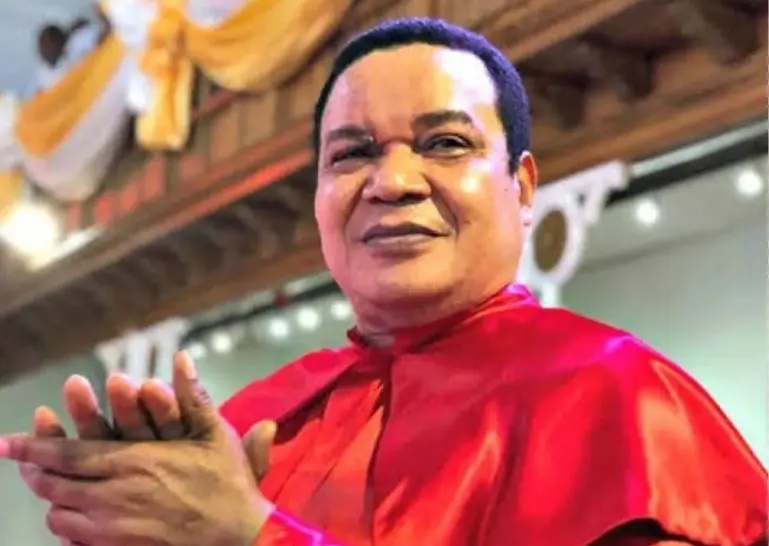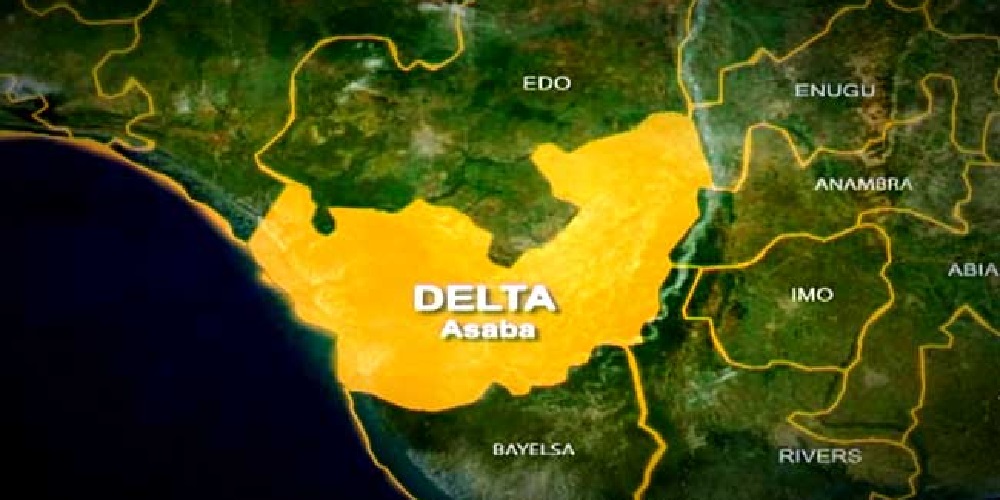News
2027 Presidency: 10 Reasons Why Tinubu May Be One-Term President

By Kayode Sanni-Arewa
As Nigeria’s 2027 presidential elections approach, political analysts and insiders speculate that President Bola Ahmed Tinubu may become a one-term president.
This conjecture stems from a variety of factors including internal party dynamics, public dissatisfaction, and geopolitical considerations.
*Political Dynamics within the APC*
The All Progressives Congress (APC), Tinubu’s party, is experiencing significant internal strife. Various factions within the party are vying for control, with some powerful members feeling marginalized by Tinubu’s administration.
This internal discord could weaken Tinubu’s position and reduce his chances of securing the party’s nomination for a second term.
*Public Dissatisfaction*
Public dissatisfaction with Tinubu’s administration is growing. Many Nigerians are frustrated with the persistent economic challenges, including high unemployment rates, inflation, and a declining standard of living. The administration’s inability to effectively address these issues could drive voters to seek change in the next election.
*Security Concerns*
Nigeria continues to grapple with serious security issues, including insurgency in the northeast, banditry in the northwest, and separatist agitations in the southeast. The government’s perceived failure to effectively manage! these security challenges has eroded public confidence in Tinubu’s leadership.
*Economic Performance*
The economy remains a critical issue for many Nigerians. Despite some efforts to stabilize the economy, the country is still struggling with high inflation, a weak currency, and slow GDP growth. Critics argue that Tinubu’s economic policies have not delivered the promised improvements, leading to widespread discontent.
*Regional Tensions*
Regional tensions
also play a significant role. Tinubu, hailing from the southwest, has faced criticism from other regions that feel neglected or underrepresented in his administration. Balancing these regional interests is a complex task, and failure to do so could undermine his support base
*Opposition Strategies*
The opposition parties are gearing up for a fierce contest in 2027. With a unified strategy and a focus on key issues such as security and the economy, the opposition could present a formidable challenge to Tinubu’s re-election bid. Notably, the People’s Democratic Party (PDP) is positioning itself as a viable alternative, capitalizing on the APC’s perceived failures.
*Corruption Allegations*
Corruption remains a pervasive issue in Nigerian politics. Allegations of corruption within Tinubu’s administration could further erode public trust and support. Transparency and accountability are key concerns for voters, and any perceived lack of these could be detrimental to his re-election prospects.
*Civil Society Movements*
Civil society organizations and advocacy groups are increasingly vocal about governance issues. These groups have the potential to mobilize public opinion against the current administration, especially if they highlight issues such as human rights abuses, lack of transparency, and poor governance.
*Health Concerns*
Tinubu’s health has been a topic of speculation and concern. Any significant health issues could affect his ability to campaign effectively and fulfill the demands of the presidency, thereby influencing voters’ decisions in 2027.
*Ethnic and Religious Factors*
Ethnic and religious dynamics are also at play. Nigeria’s diverse ethnic and religious composition means that any perceived favoritism or marginalization can influence voting patterns. Tinubu’s ability to navigate these sensitivities will be crucial.
News
Brotherhood crisis turns violent as worshippers reject Olumba’s successor

The prolonged succession crisis in a Nigerian Christian religious sect, the Brotherhood of the Cross and Star, has festered on since its founder, Olumba Obu, passed away.
The crisis turned violent recently as angry worshippers in a particular branch in Uyo, Akwa Ibom State, became riotous, destroying the portrait of Olumba’s first son, Rowland, who leads a faction of the sect.
Olumba’s daughter, Ibum, leads another faction.
A video, which is being circulated on WhatsApp groups and Facebook, captured a man in a white cassock yanking off Rowland’s portrait from the wall and smashing it on the floor amid cheers from worshippers.
Rowland’s portrait was hung near Olumba’s, but the angry worshippers did not attack the latter.
“Bring it down!” a woman’s voice could be heard shouting in the background of the video as the man in a white cassock smashed the glass frame on the ground.
“This is who we are worshipping,” a man’s voice could be heard shouting repeatedly as the camera panned and then focused on Olumba’s portrait on the wall.
It is not clear when the incident happened.
Amah Williams, the sect’s spokesperson, said the incident happened in Uyo at the sect’s Nsikak Edouk Avenue branch.
Rowland and Ibum, with hundreds of their followers, are claiming the leadership of the 68-year-old sect after their father’s passing, causing a disastrous split in a once united and strong organisation headquartered in the Biakpan community in Cross River State, Nigeria’s South-south.
‘They are rebels’
Mr Williams, the sect’s spokesperson, told reporters on Saturday in Uyo that those responsible for the incident belong to a breakaway faction called Brotherhood of the Cross and Star New Kingdom Ministry.
He described them as rebels who do not want to accept Rowland’s leadership – he did not call Rowland by name as Olumba’s successor is revered among worshippers as “King of Kings and Lord of Lords, His Holiness Olumba Olumba Obu”.
“They are rebels. They rebelled; they rejected the rulership of the Kingdom of Christ,” Mr Williams told reporters.
“The holy image of our father is what we hold sacred,” he said, apparently referring to the destruction of Rowland’s portrait.
A reporter asked the spokesperson what place Jesus Christ occupies in the Brother of the Cross and Star.
“That same (Jesus) Christ is the one that came with the new name Olumba Olumba Obu,” responded.
“If Olumba were to be a white man, black men would have gone to worship on his feet.”
The over 1 million global members of the Brotherhood of the Cross and Star do not see themselves as a church but as the new Kingdom of God on Earth. They have also refused to admit that their founder had passed away as the sect has yet to announce his passing or publicly conduct his burial.
News
Tinubu’s reforms struggling to deliver meaningful results – IMF

Eighteen months after the implementation of Nigeria’s ongoing economic reforms, the International Monetary Fund (IMF) has observed that the fiscal policies introduced by the President Bola Tinubu administration are struggling to deliver meaningful results.
Catherine Patillo, IMF Deputy Director, while presenting a report at the Lagos Business School (LBS) on Friday, reported a mixed performance of economic reforms across Sub-Saharan Africa, with notable successes in countries such as Côte d’Ivoire, Ghana and Zambia.
Nigeria was conspicuously absent from the list of success stories in the region.
The report stated that sub-Saharan Africa’s average economic growth rate is projected to remain at 3.6 per cent for 2024. It noted that Nigeria’s growth rate, pegged at 3.19 per cent, falls below this average.
Patillo said that while macroeconomic imbalances have reduced in several countries, Nigeria has yet to show such progress.
She stated that more than two-thirds of countries have undertaken fiscal consolidation, stressing that while the median primary balance is expected to narrow by 0.7 percentage points alone in 2024, there are notable improvements in Cote d’Ivoire, Ghana, and Zambia, among others.
The report stated, “In contrast, Nigeria’s inflation rate, which slowed briefly in July and August, resumed its upward trend in September, rising further in October.
“At 33.8 per cent, it significantly exceeds the 21 per cent target set for 2024, with analysts predicting further increases in November and December.”
The report also observed Nigeria’s struggles with exchange rate stability, highlighting it as one of the worst-performing nations in that regard.
According to the report, other countries in the region are experiencing reduced foreign exchange pressures but Nigeria’s local currency depreciation and instability remain a concern.
On debt servicing, the report said Nigeria ranked among countries suffering the heaviest fiscal burden.
The IMF noted that rising debt service obligations are consuming substantial portions of revenue, limiting resources available for development.
It stated that in Angola, Ghana, Nigeria, and Zambia, the increase in interest payments alone absorbed a massive 15 per cent of total revenue.
The IMF grouped Nigeria among resource-intensive countries struggling with social and political challenges that hinder reform implementation.
Political unrest, public dissatisfaction, and tight financing conditions were identified as major impediments.
The report noted that resource-intensive countries continue to grow at about half the rate of the rest of the region, with oil exporters struggling the most and further noted that adjustment fatigue, public resistance, and weak communication strategies are undermining the impact of reforms in Nigeria.
The IMF recommended rethinking reform strategies, urging countries like Nigeria to adopt measures that mobilise public support for deep structural changes.
It pointed out the need for greater attention to communication and engagement strategies, reform design, compensatory measures, and rebuilding trust in public institutions.
News
NMDPRA seals oil, gas retail outlets in Delta over sharp practices

The Nigerian Midstream and Downstream Petroleum Regulatory Authority, NMDPRA, has sealed petroleum retail outlets and gas plants over sharp practices in Delta.
Their offenses bordered on under-dispensing, operating without valid licenses and other illegalities within the filling stations.
They were sealed by the surveillance team of the regulatory authority at Asaba and Ibusa in the state.
The Delta State Coordinator of NMDPRA, Engr. Victor Ohwodiasa, revealed over the weekend that the authority would not tolerate a situation where people would be shortchanged as a result of under-dispensing and other illegalities.
Ohwodiasa called on petroleum marketers to ensure that their metres are well-calibrated and sell accurately.
According to him, the awkward dealings included but not limited to under-dispensing, product quality, suspected diversion, illegal bunkering activities, illegal discharge of unauthorised petroleum products in unauthorised locations.
“In line with our mandates, we constantly visit petroleum retail outlets to ensure they sell one litre for one litre.
“Agreeably, there are bound to be variations due to mechanical error in their machines but these are subject to limits, when it exceeds, we shutdown the facilities,” he said
“Based on what we have been doing to ensure the consumers are not shortchanged. We have been visiting retail outlets across the local government areas in the state to ensure sanity is brought and maintained within the retail outlets.
“This week, we have sealed four stations within the Asaba and Ibusa axis over offences bordering on under-dispensing, operating without valid licenses and illegal activities within the filling stations.
“We will continue to sustain the tempo in this ember months and beyond to ensure products are made available to consumers and sold at the right prices and quantity,” he said.
Ohwodiasa urged the public to always notify the regulatory authority whenever they notice any awkward transactions in their dealing with the petroleum marketers for immediate actions.
-

 News22 hours ago
News22 hours agoBread and butter activists: Wike not available for such adult delinquents-Olayinka slams Adeyanju
-

 News18 hours ago
News18 hours agoAdeyanju talks from both sides of his mouth -CRP slams activist
-

 News18 hours ago
News18 hours agoBanditry; Popular song writer Nnam abducted in Anambra
-

 News19 hours ago
News19 hours ago(Photos)Just in: Ondo Election: DSS Arrest Vote Buyer
-

 News18 hours ago
News18 hours agoSAD! Trailer Kills Mother, Two Daughters To Death In Ogbomoso
-

 News19 hours ago
News19 hours agoGunfire Hits Southwest Airlines Plane at Dallas Airport
-

 News14 hours ago
News14 hours agoAt last, Marketers Agree to Crash Petrol Prices as Dangote Sells Fuel at Reduced Cost after Deal
-

 News19 hours ago
News19 hours agoGuber: Aieyedatiwa votes in Ondo, says I’m at advantage








